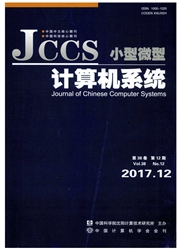

 中文摘要:
中文摘要:
多元聚合酶链反应(multiplex PCR,MP-PCR)是一种运用多对引物同时扩增多条DNA序列或一条DNA序列上多个区域的生物学实验方法.引物集设计对于实验的成功至关重要.由于引物合成是实验成本的主要来源,且引物需要满足许多约束条件,因此设计满足多约束条件的最小引物集是保证实验成功、降低实验成本的有效手段.首先给出多约束最小引物集选择问题(minimum primer set selection problem with multiple constraints,MPSSPMC)的数学模型,通过引入新颖的遗传算子,提出一种求解该问题的单亲遗传算法MG-PGA.实验结果表明MG-PGA在满足多约束条件下能获得较小的引物集,为MP-PCR引物设计提供了一种有效的解决方法.
 英文摘要:
英文摘要:
Multiplex polymerase chain reaction (MP-PCR) is a biological experimental technique to amplify multiple DNA sequences or multiple regions of a DNA sequence simultaneously by using different primer pairs. The choice of primers is very important for successful PCR experiment. The expense of PCR experiment comes mainly from synthesizing PCR primers, and there are many constraints need to be satisfied by primers, therefore, it is an effective way for successful and economical experiment to design the minimum primer set with multiple constraints. In this paper, firstly, a mathematical model of minimum primer set selection problem with multiple constraints (MPSSPMC) is presented. Secondly, a parthenogenetic algorithm named MG-PGA for solving this problem is proposed by introducing a novel genetic operator. Experimental results show that MG-PGA is able to find a small primer set on the premise of satisfying multiple constraints. Hence, it is an effective solution for MP-PCR primer design.
 同期刊论文项目
同期刊论文项目
 同项目期刊论文
同项目期刊论文
 Significant linkage and association between a functional (GT)n polymorphism in promoter of the N-met
Significant linkage and association between a functional (GT)n polymorphism in promoter of the N-met A model of higher accuracy for the individual haplotyping problem based on weighted SNP fragments an
A model of higher accuracy for the individual haplotyping problem based on weighted SNP fragments an Modifying the DPClus algorithm for identifying protein complexes based on new topological structures
Modifying the DPClus algorithm for identifying protein complexes based on new topological structures Approximation algorithm based on chain implication for constrained minimum vertex covers in bipartit
Approximation algorithm based on chain implication for constrained minimum vertex covers in bipartit A modified particle swarm optimization-based dynamic recurrent neural network for identifying and co
A modified particle swarm optimization-based dynamic recurrent neural network for identifying and co 期刊信息
期刊信息
